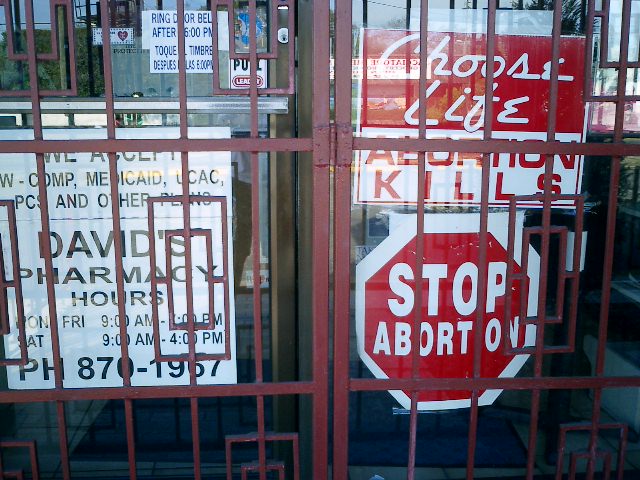January 04, 2004
State to needy: "Pay or die!"
Good news: An outrageous Republican plan to put pharmacists in charge of determining need has crashed and burned. See, our esteemed Governor and his legislative cohorts thought they could extort $27 million from poor people who could either pay up or die. Florida’s Medically Needy program helps with health care costs for those with a catastrophic illnesses who have exhausted their own insurance but who do not qualify for regular Medicaid.
The state has ended a new program, just a day after its inception, that forced private pharmacists to decide whether poor and medically needy patients should pay a fee for prescriptions that have been free.Late Friday, state officials ordered a temporary halt to the fees after questions were raised about whether they violated the law by failing to notify patients of the charges.
A number of chain pharmacies and independent drug stores reported they were charging the co-payments before being told to stop at 8 p.m.
......The prescription fees were part of a legislative compromise last year that restored funding for the medically needy program in the state budget. State figures show Medicaid expected to collect $27 million from the co-payment.
Health advocates and state lawmakers said the system was illegal and could have forced poverty-stricken people to pay fees they can't afford - or, at worst, deny lifesaving drugs to critically ill patients.
``We've made pharmacists the gatekeepers,'' state Rep. Anne Gannon, D-Delray Beach, said. ``They're deciding whether people live or die.''
Under the system, which went into effect Thursday, Medicaid and medically needy patients were to be charged a co-payment of 2.5 percent of the prescription price for drugs costing up to $300, and a flat charge of $7.50 for medication costing more than that.
``They say, `I can't give you the pills you need to stay alive. Reach in your pocket and pull out seven bucks.' It's wrong,'' said Mary Ellen Ross, executive director of the Florida Transplant Survivors Coalition.
Gannon said she never heard of the plan to let pharmacists decide who can afford to pay for drugs. She said she intends to demand answers.
``Why is the state giving the pharmacists authority to decide that?'' Gannon asked. ``I mean, why do we even do a budget if the pharmacists decide?''
......State health officials defended the arrangement, saying pharmacists are better equipped than the state to decide who can afford to pay.
So, a pharmacist is supposed to simply size up a customer and decide if said customer is worthy of having the co-payment waived. The pharmacists were not notified of this change. They were not trained. No criteria was issued for determining who would qualify to skip the co-pay.

|
The owners of David's Pharmacy in Tampa were surprised by both the new program and its reversal. They didn't realize until Friday - when they re-opened after the New Year's Day holiday and saw changes in their online billing instructions - that they were to start collecting co-payments from some people, co-owner Carmen Cartaya said.``They didn't notify us, they didn't notify the patients,'' said Cartaya, whose business is at 2302 W. Martin Luther King Blvd.

|
See, I don’t want people like the owners of this pharmacy deciding weather or not I will have to pay for my prescription. Judging by the sign in front of their business, these folks are right wing Christian anti-abortion crusaders. If I’m not of the correct religious persuasion, how can I trust that these apparent fundamentalists will overlook their religious bias and make a fair decision regarding my ability to pay?

|
Long a target for mean-spirited Republicans, this program was cut to the bone in 2002, and partially restored in 2003.
Medically Needy serves catastrophically ill Floridians, such as organ transplant recipients and AIDS, cancer and dialysis patients, who have exhausted their own insurance and whose incomes would be depleted by their bills. In many cases, the patients' bills range from $1,500 to $3,000 a month.During last year's budget crunch, lawmakers decided that Medically Needy participants would have to spend all but $450 of their monthly income on their medical care before the state would help with the bills. But they delayed the cuts until today.
The issue quickly ballooned into the biggest humanitarian issue in the Capitol after participants were formally notified of the cuts in letters from the state. They flooded lawmakers with letters, e- mails and phone calls in which they said they could not live on $450 a month and would have to leave the program or lose their homes.
Today’s article says that this policy was halted because patients were not notified of the fees, a possible violation of law. The state is still defending the policy, however, so it will probably be reinstated. Let Jeb know what you think. Find your legislators and let them know too.
Posted by Norwood at January 4, 2004 11:31 AM